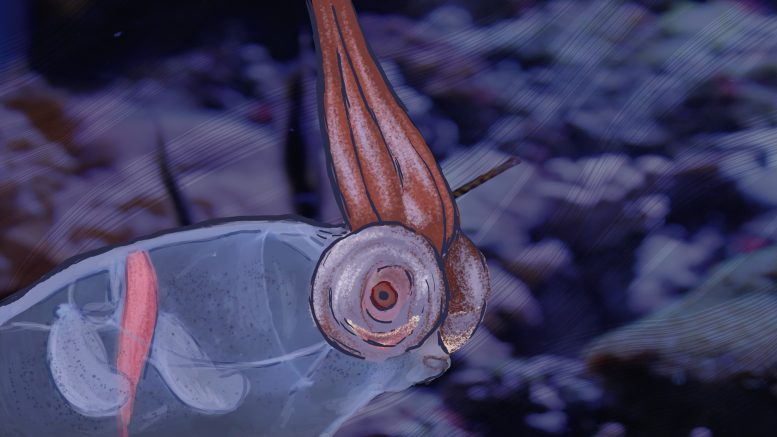Is the pursuit of perfection necessary? The glass squid seems to suggest otherwise.
Researchers from the University of Pennsylvania have found that squids in the genus Galiteuthis use their own imperfection as a means of survival. The new research, which was published last month in the Journal of the Royal Society Interface, shows that the Galiteuthis squid is able to camouflage itself from predators thanks to extremely inefficient light cells behind their eyes.
Predators that search for the glass squid are frequently fooled by its transparent body, which fails to cast a shadow. Like a chameleon, the squid blends into its surroundings. Yet most species of glass squid are given away by their distinctive eyes, which jut out from the rest of the body. This is remedied by special cells beneath the Galiteuthis squid’s eyes, which are equipped to deal with this problem. The cells emit light in a process known as bioluminescence, hiding the shadows cast by the eyes.
One of over 60 species of “glass squid,” Galiteuthis squids have a transparent body and are found in every corner of the globe except the Arctic Ocean. They swim between 200 and 1,000 metres below the ocean surface, where waters are mostly dark.
The unique adaptation of the Galiteuthis squid is a structure that directs the light it produces through bioluminescence in one direction. Without this structure, light would be emitted equally in all directions, doing more harm than good – the creature would expose itself to predators.
Don’t think that these structures could be used inside your television though. Your Hydro bill would be through the roof! Researchers Alison Sweeney and Amanda Holt discovered the structures are awful at directing light. Though most of the light travels through the cable, some of it also spills sideways.
“We struggled with that for a while, before realizing, ‘oh, that’s part of the point,’” Sweeney told National Geographic magazine.
Why is this flaw an advantage? It turns out a small amount of sunlight still seeps through the ocean at angles other than vertical. The leakage of light from the Galiteuthis squid replicates the surrounding conditions so that it is camouflaged better from a wider variety of angles. What would seem like an evolutionary error is actually a fascinating adaptation.


